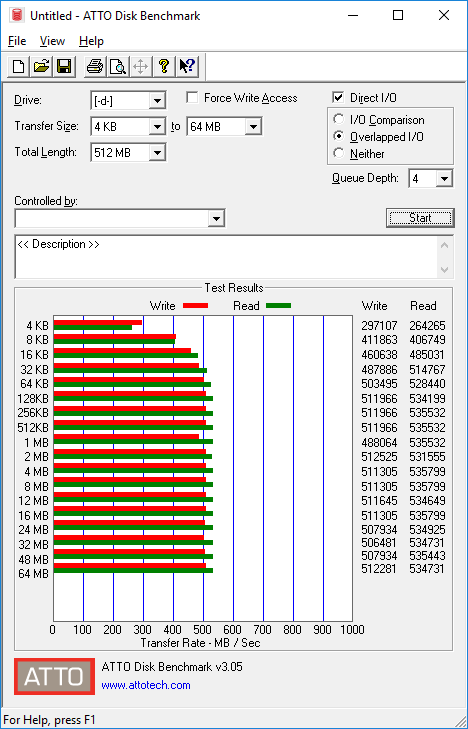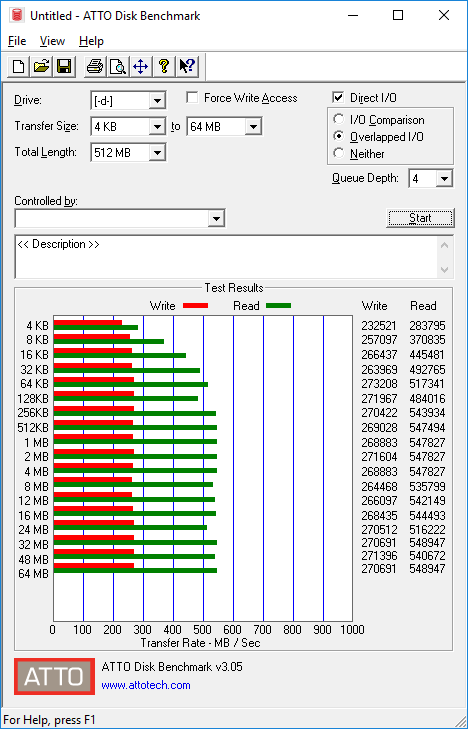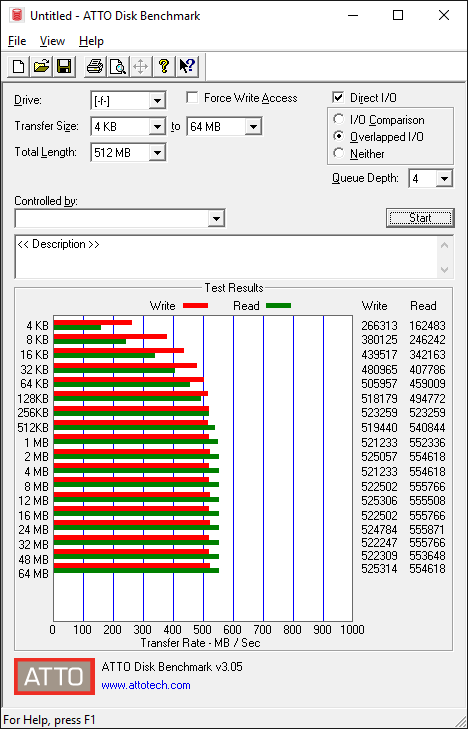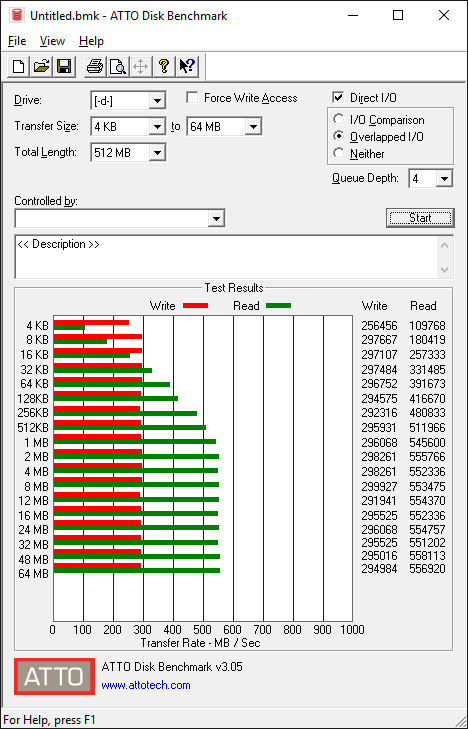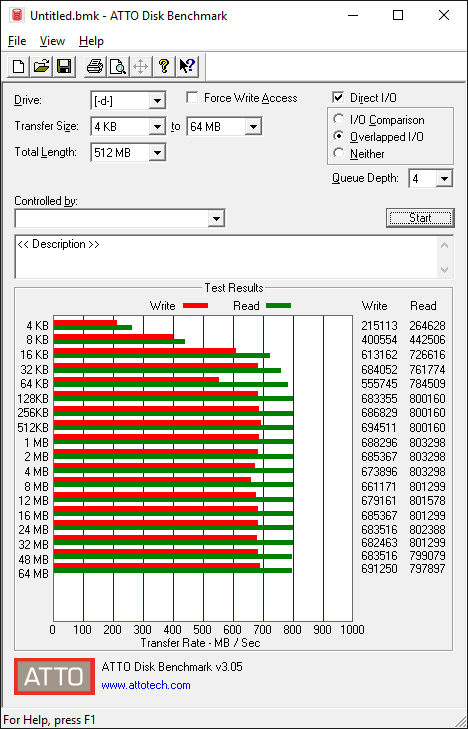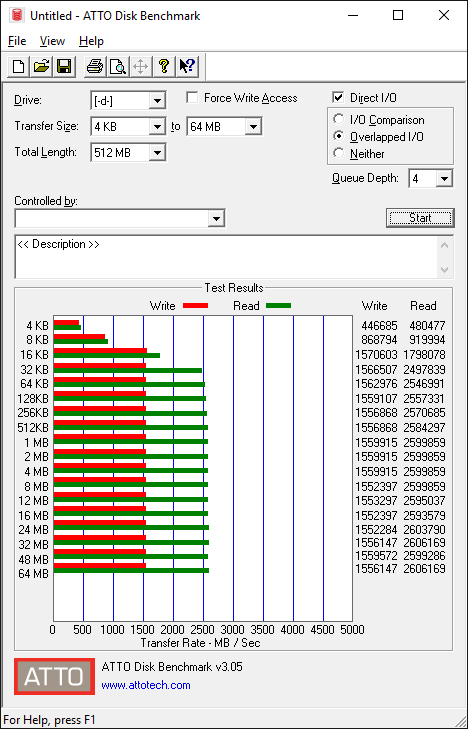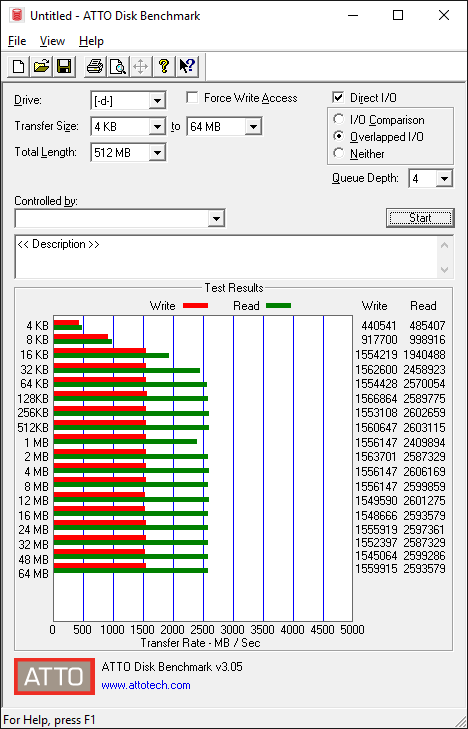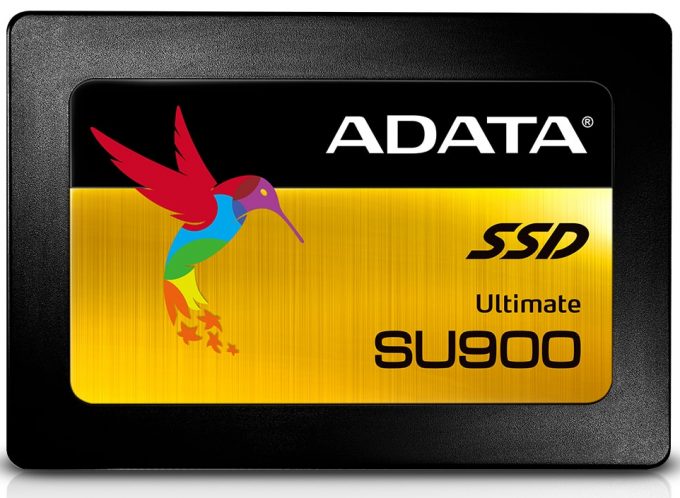- Qualcomm Launches Snapdragon 4 Gen 2 Mobile Platform
- AMD Launches Ryzen PRO 7000 Series Mobile & Desktop Platform
- Intel Launches Sleek Single-Slot Arc Pro A60 Workstation Graphics Card
- NVIDIA Announces Latest Ada Lovelace Additions: GeForce RTX 4060 Ti & RTX 4060
- Maxon Redshift With AMD Radeon GPU Rendering Support Now Available
A Look At ADATA’s SU900 512GB SSD

While ADATA has a wide variety of budget SSDs on offer, it also has a growing number of more premium offerings. Under review today is one such drive, the SATA-based SU900, an MLC drive with a five-year warranty. Let’s see how it performs compared to other drives in the same budget range.
Page 3 – ATTO, Robocopy, dBpoweramp & Final Thoughts
ATTO
There is negligible difference between the SU800 and SU900 in this test, both deliver 500MB/s or better writes at 128KB access sizes and above.
This program emphasizes better than most the hidden performance limitations that used to be common in the earliest generations of solid-state drives, as the m4 results differ drastically with the drive capped around 280MB/s writes regardless of access size.
Drives like the m4 are still preferable to spinning rust, but the performance differential between it and modern SSDs such as the SU900, particularly under heavy multitasking loads, may be enough to justify an upgrade.
RAMDrive Robocopy
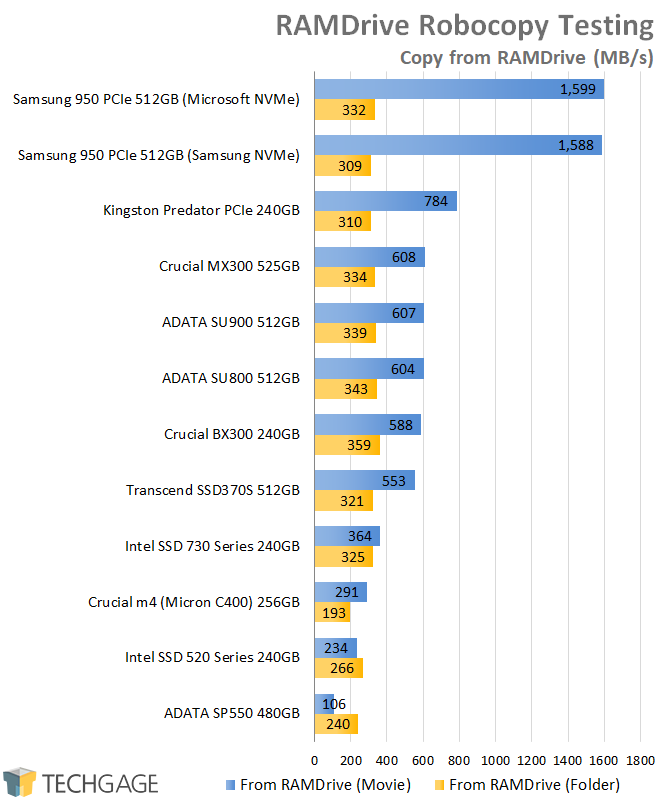
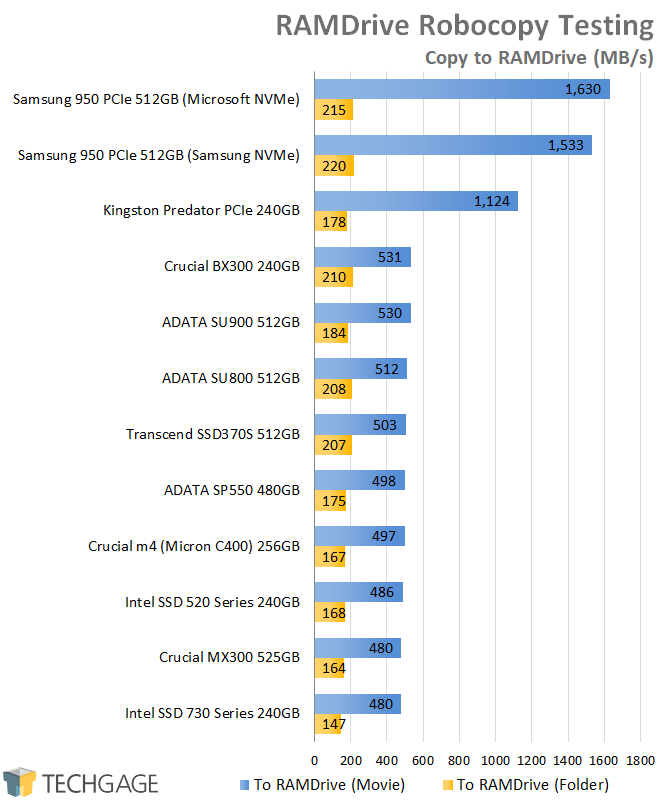
Robocopy is one of the few real-world usage scenarios that can highlight differences between SSDs. The movie file is nearly 10GB which exceeds the 8GB fast write-cache of most drives, which is why the SU900 begins to pull away from its SU800 sibling in the write tests. The read tests have no such limitation and show a bit more variability, through the SU900’s MLC flash edges out again by 18MB/s for the movie transfer.
dBpoweramp
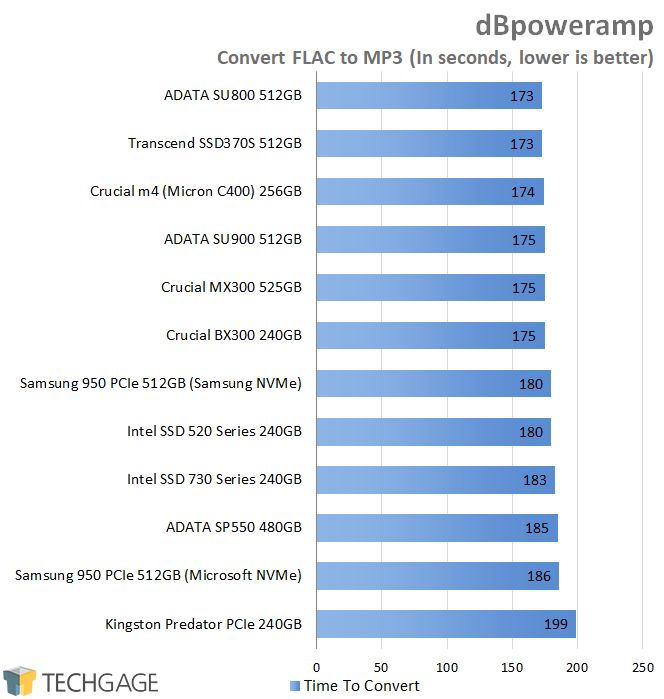
In an effort to find more real-world tests, we attempted lossless transcoding from FLAC to .M4A with the Apple Lossless Audio Codec (ALAC). Unfortunately, this test remains CPU bound with a Haswell quad-core processor, which goes to show why transcoding and encoding is still relegated to spinning platter drives. The SU900 isn’t able to replicate the 2-second quirk in results. That said, even if we removed the bottleneck by upgrading to a ten (or more) core CPU, it seems a smidge unlikely people would be pairing such processors with interface bottlenecked SATA drives.
Final Thoughts
ADATA’s SU900 is a solid-state drive that delivers strong performance using a proven Silicon Motion SM2258 controller and 3D MLC NAND. It also includes an optional aluminum 3.5″ adapter bracket and 7mm-to-9mm height shim which allow the SU900 to fit into practically any desktop or laptop system as a drop in upgrade.
While the SU900 is only a marginal performance upgrade over the SU800 series, it upgrades the warranty to five years and swaps the TLC NAND for MLC ,which should give the SSD a longer lifespan than the system it is being put inside. Unfortunately, these upgrades over the SU800 also come with a steep upgrade in price that just doesn’t seem justifiable over the SU800.
Unless you are looking for an SSD that is intended to be used in some uncommon, very high wear application where the appreciably longer endurance of MLC flash is a strong value add, the current $210 price for the 512GB model is just not justifiable. To give some perspective, the SU800 we reviewed currently costs $130.
Even ADATA itself currently offers not one, not two, but three NVMe M.2 class SSDs of the same capacity for less, namely the SX6000, SX7000, and the S10 Gammix that we have in the lab undergoing review! Needless to say it seems we are quickly reaching the point where consumers looking for a solid-state upgrade will begin paying extra for the legacy SATA interface than those buying a higher performing M.2 NVMe solid-state drive.
ADATA’s SU900 may be on a short timer as because as of this writing it was hard to find direct sellers other than ADATA itself via Amazon, the 2TB model never seemed to reach market, and the drives have already been superseded by the very similar SX950 XPG model, which one can also find on Amazon direct from ADATA for $150.
The SX950 retains the same 3D MLC flash and controller, but upgrades the warranty to six years. Undoubtedly buying the same drive as the SU900 at a $60 discount and with a better warranty is the way to go, so we will have to dutifully point consumers toward the SX950 over the SU900. Sadly we cannot end there, as ADATA makes a very similarly named “SX950U” drive as well. The “U” model appears to be an older drive from 2015 with a lower warranty and TLC NAND, so consumers should be careful not to confuse it with the “SX950” non-U variant.
Needless to say this alphabet soup of models available to purchase (often with very minor changes) is becoming a problem; in the process of researching drives it has become readily apparent that ADATA has the most models still offered of any SSD manufacturer in the market. The $150 price point of the SX950 seems like an excellent deal in comparison to the SU900, but that still leaves the SX950 priced equivalent to options like the Samsung 860 EVO or entry level NVMe M.2 drives such as ADATA’s own SX6000, SX7000, and S10 drives.
If it absolutely must be a SATA drive then the SX950 is certainly a capable and reasonably priced option to add to the shortlist. After seeing the SU900’s results we can affirm the SX950 will have strong performance and it is hard to argue against a six year warranty. Just don’t go paying $200 for one.
Support our efforts! With ad revenue at an all-time low for written websites, we're relying more than ever on reader support to help us continue putting so much effort into this type of content. You can support us by becoming a Patron, or by using our Amazon shopping affiliate links listed through our articles. Thanks for your support!












